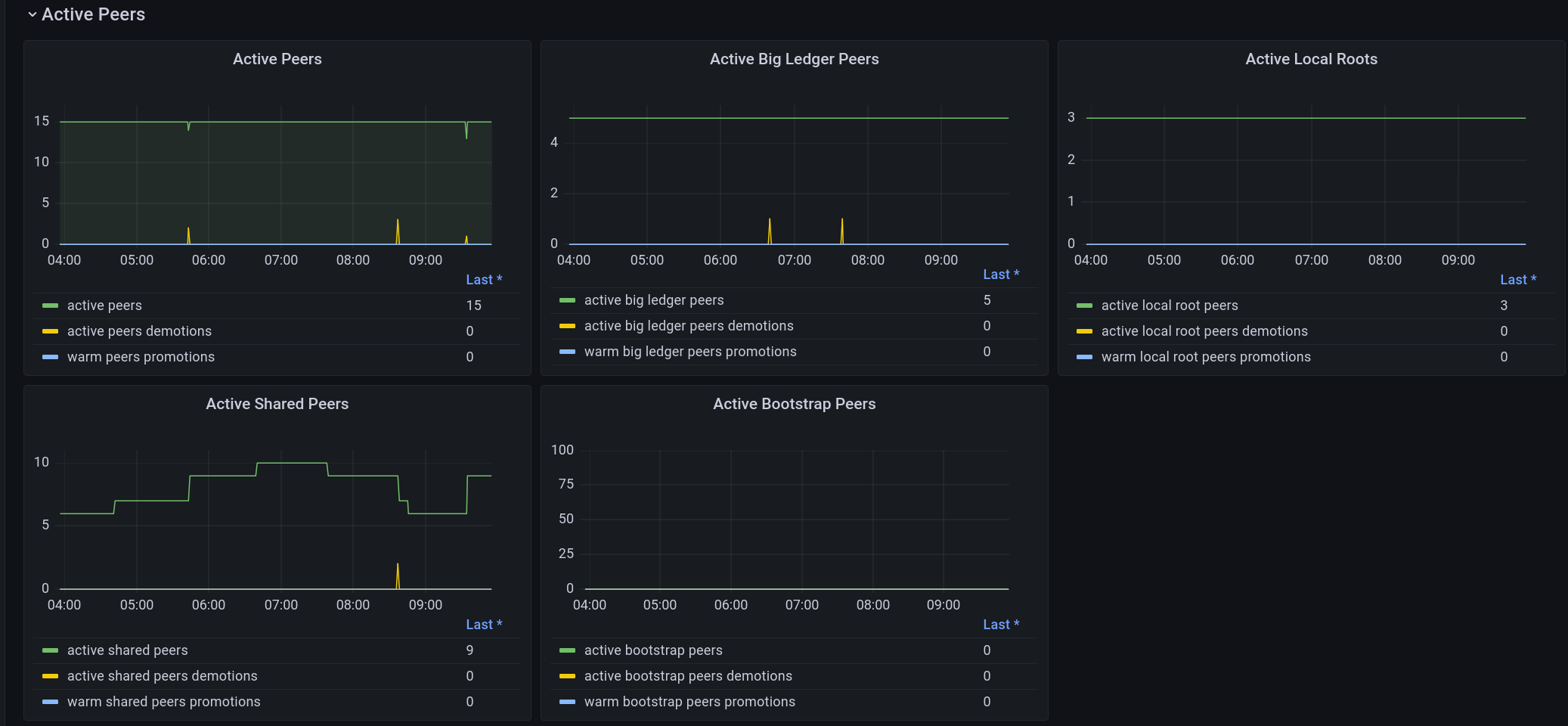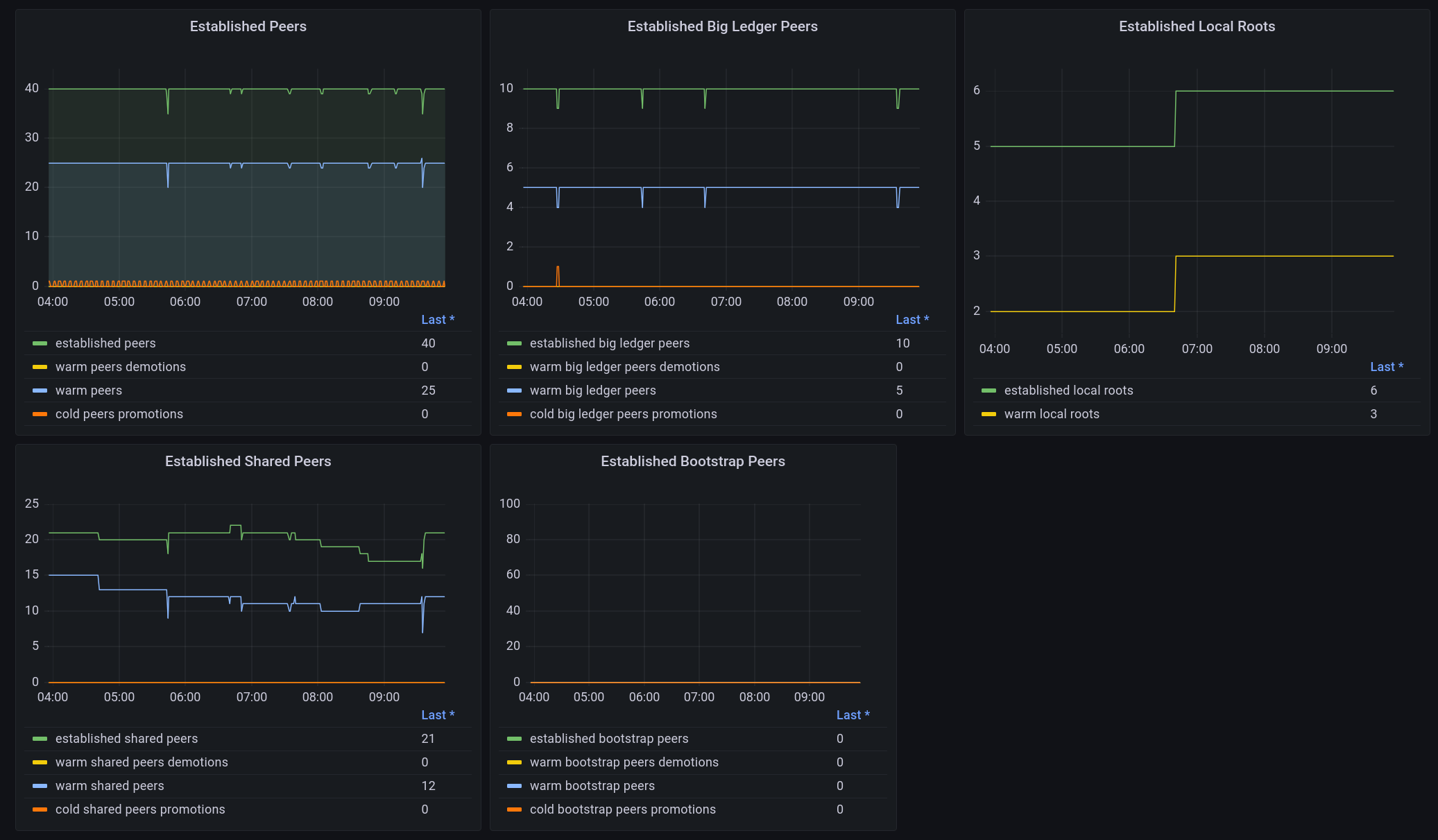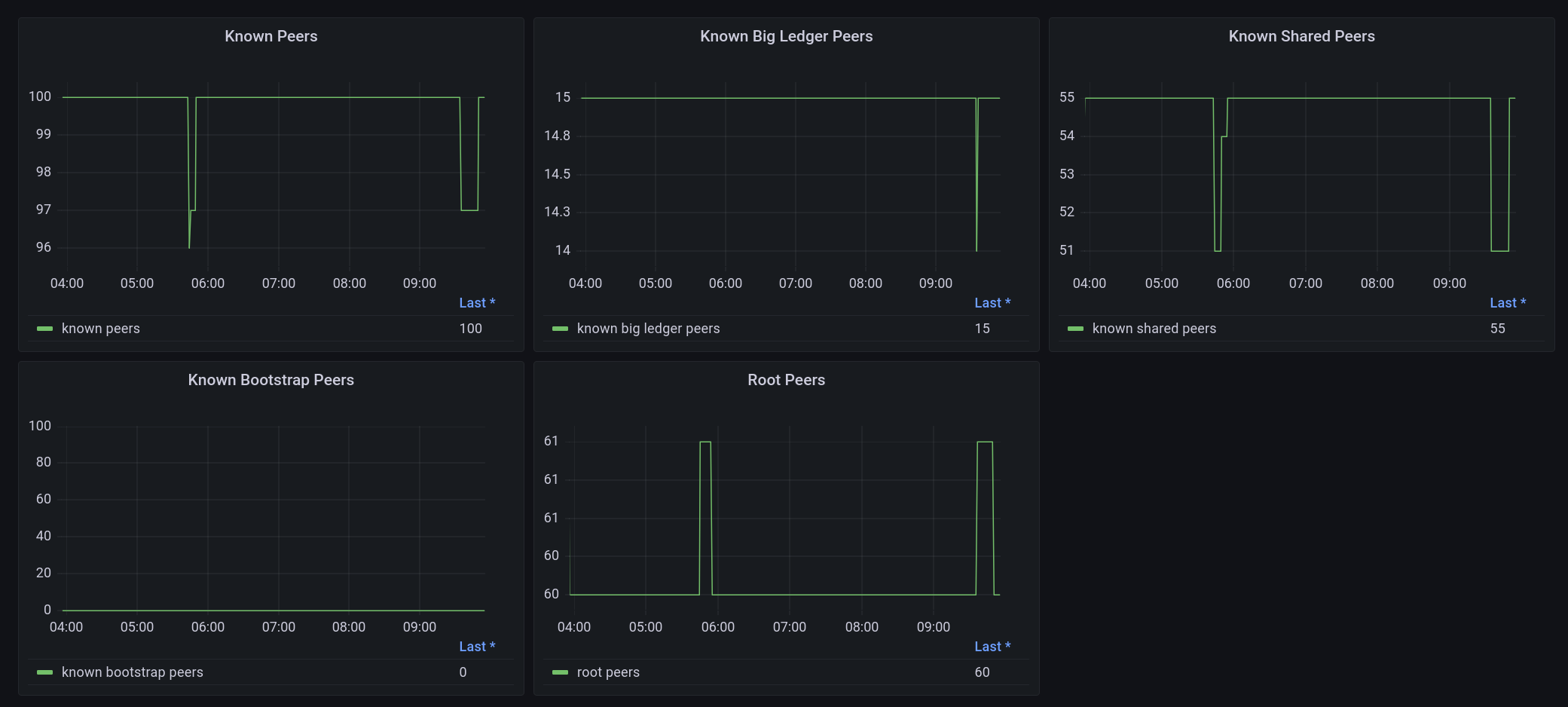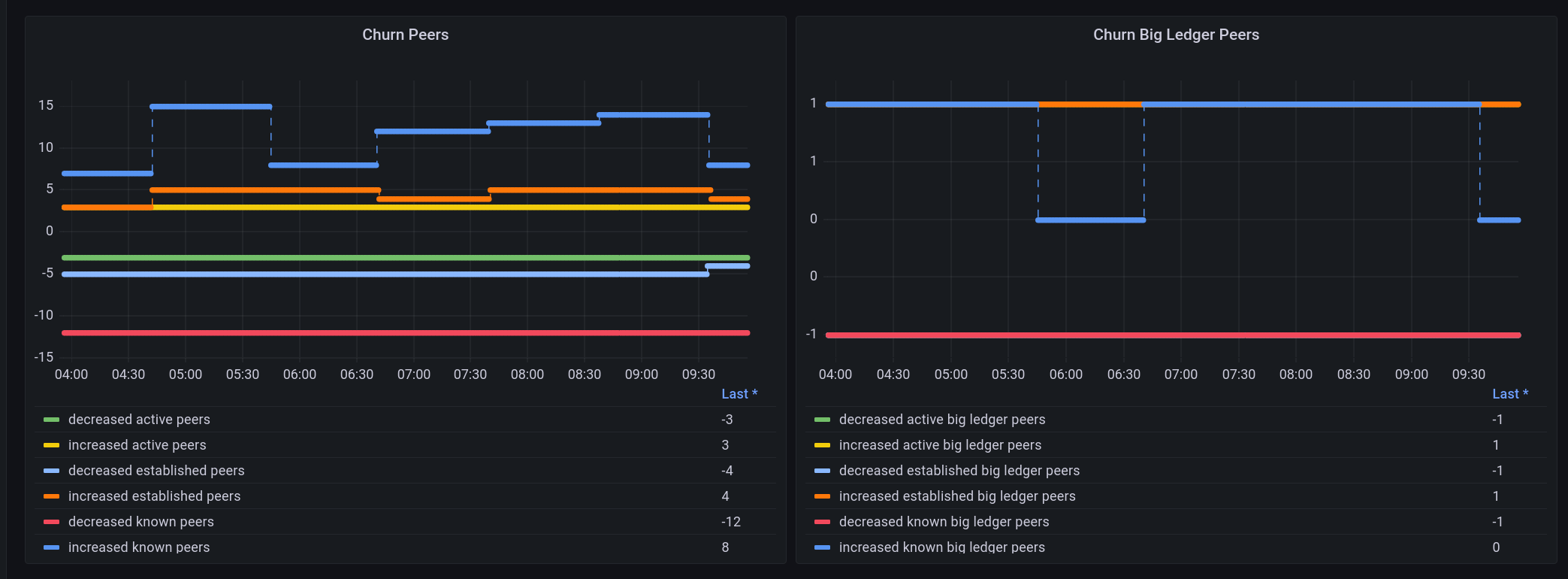High-level overview of sprint 68
Peer Sharing
Karl Knutsson (CF) produces graphs which show how peer sharing usage expands on mainnet.
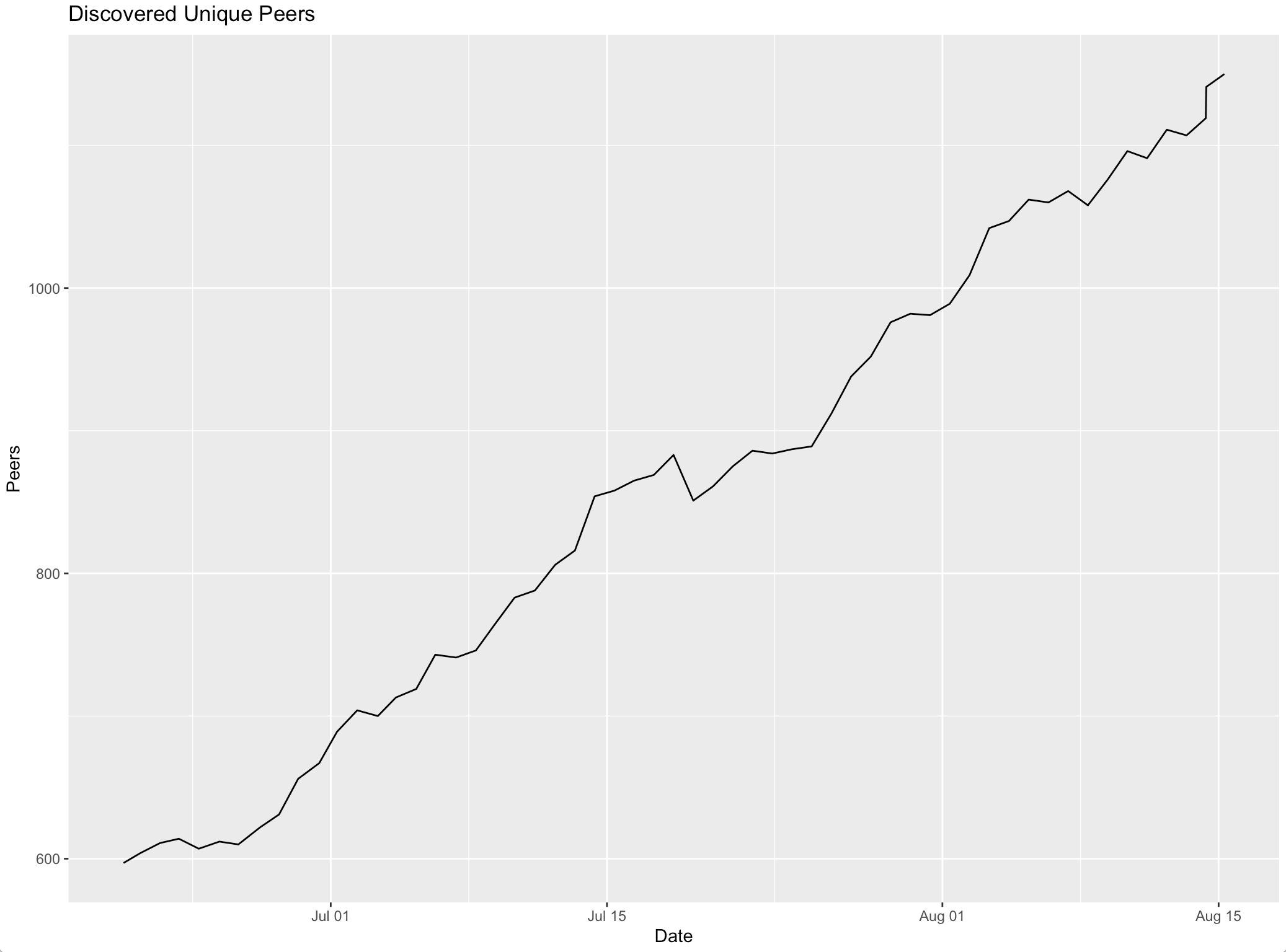
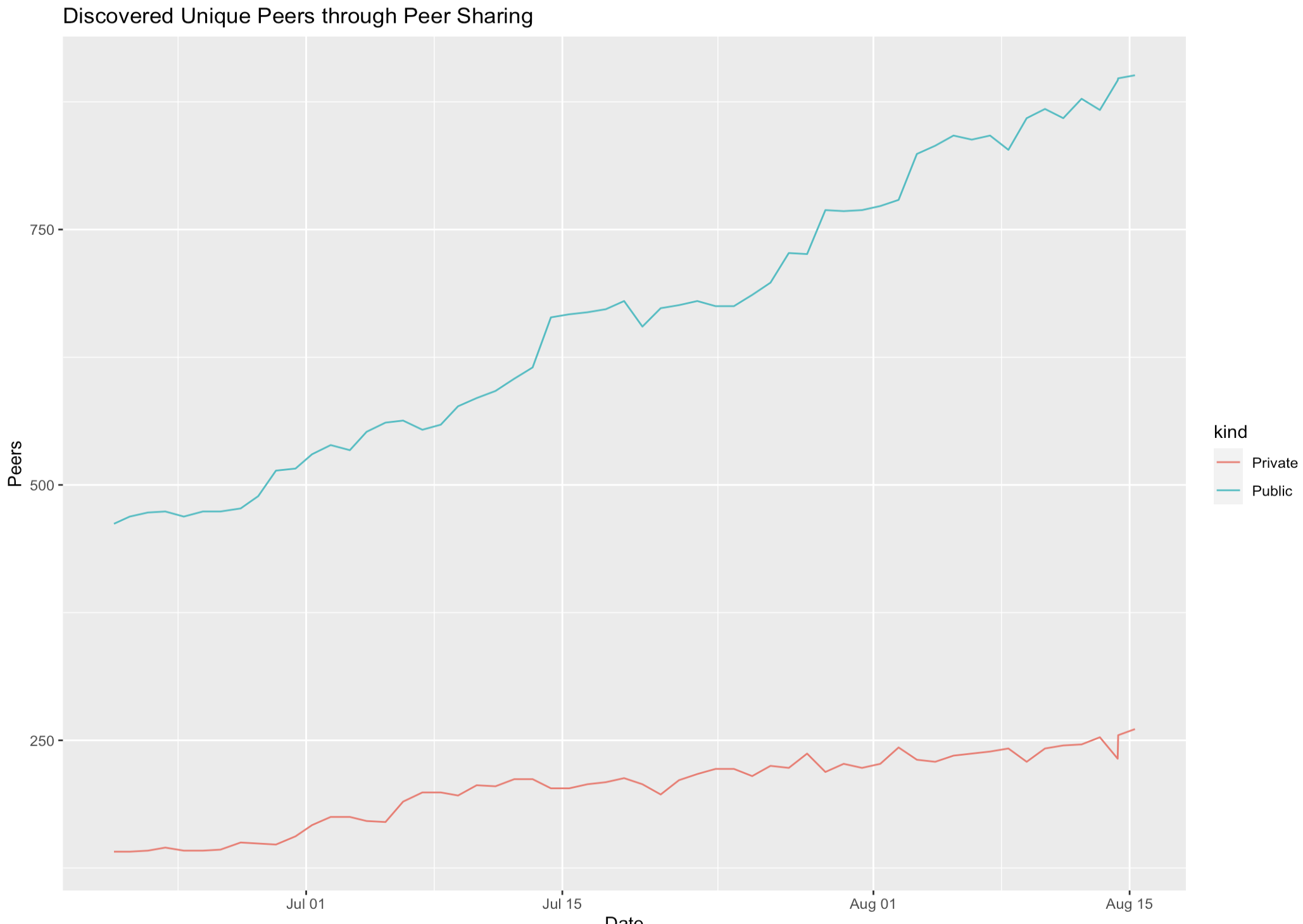
Private relays in the last graph are relays which we are not certain that are registered on the chain.
Typed Protocols
We conducted an investigation whether the new proposed typed-protocols
version (see typed-protocols#52 introduces any performance regression. No
regression was found when running a cardano-node (v9.1.0 vs a modified
version using the new typed-protocols API) the benchmarking cluster. Also no
regression was observed when syncing mainnet. The graph below shows
accumulated size of block downloaded over time for both nodes:
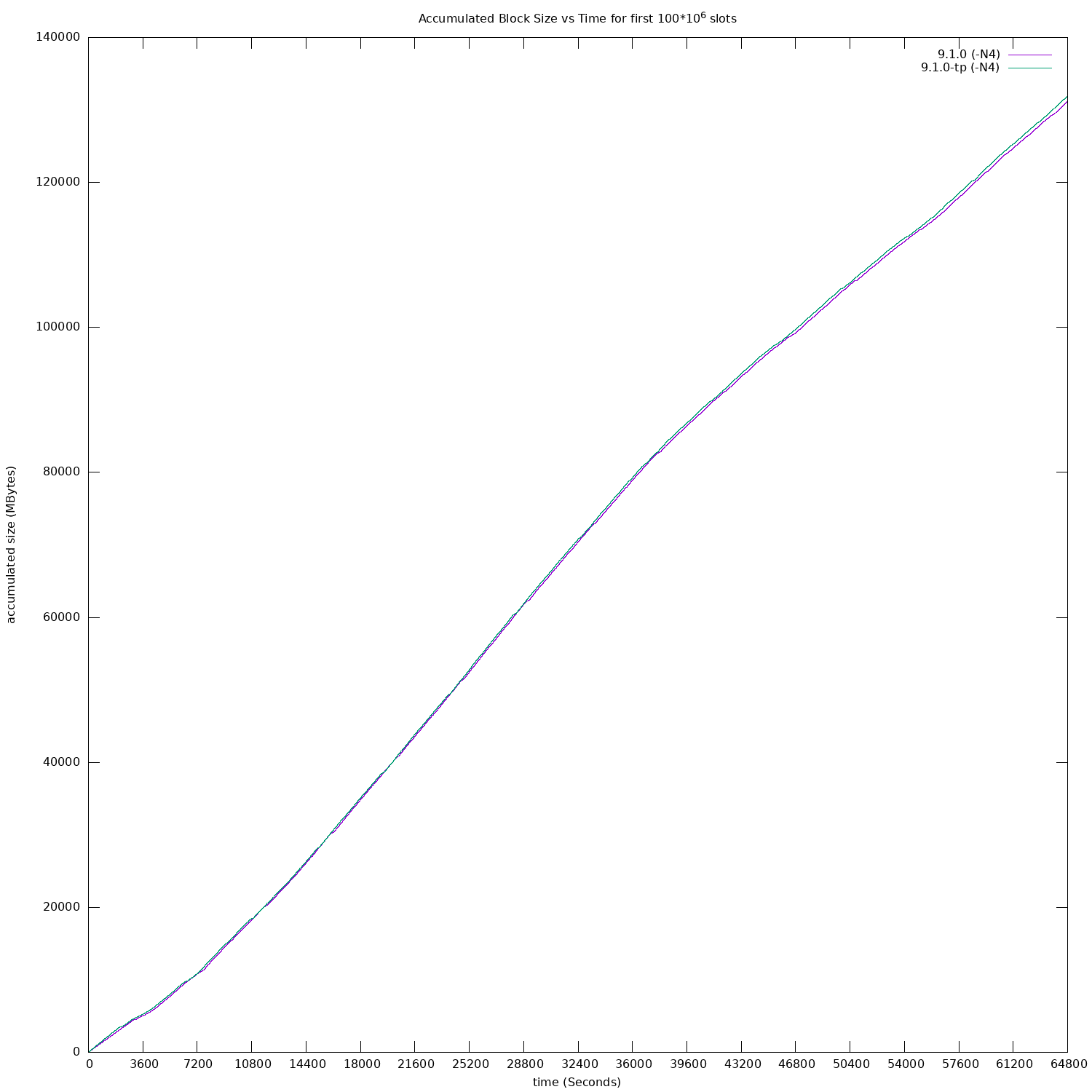
The following draft PRs are openned:
- typed-protocols#52
- ouroboros-network#4935 - Ouroboros-Network changesd
- ouroboros-consensus#1223 - Ouroboros-Consensus changes
- cardano-api#619
- cardano-cli#870
- ekg-forward#33
- cardano-node#5956 -
cardano-nodeversion using newtyped-protocolsAPI
cardano-cli ping
Fixed a bug in which cardano-cli ping exited with wrong exit code when a wrong network magic was supplied, see ouroboros-network#4865.
cardano-cli ping will also now report the remote IP address and port when querying the tip:
> cardano-cli ping -h backbone.mainnet.cardanofoundation.org -p3001 -t -j -q | jq
{
"tip": [
{
"addr": "2a01:2a8:a23d:16::17",
"blockNo": 10699400,
"hash": "f37649c4a6ae0c8b208da7c46d4e04312518969e612af0a8dbfdadcbd7180dd2",
"port": 3001,
"rtt": 0.013192945,
"slotNo": 131991843
},
{
"addr": "2a0e:dc0:3:b122::1",
"blockNo": 10699400,
"hash": "f37649c4a6ae0c8b208da7c46d4e04312518969e612af0a8dbfdadcbd7180dd2",
"port": 3001,
"rtt": 0.024089979,
"slotNo": 131991843
},
{
"addr": "2001:15e8:110:4aae::1",
"blockNo": 10699400,
"hash": "f37649c4a6ae0c8b208da7c46d4e04312518969e612af0a8dbfdadcbd7180dd2",
"port": 3001,
"rtt": 0.034663209,
"slotNo": 131991843
}
]
}
Tx-Submission
We continued writing tests for the new tx-submission application.
We started extending typed-protocols codec to have access to both raw bytes
and decoded transactions in the tx-submission mini-protocol. See
ouroboros-network#4934.

